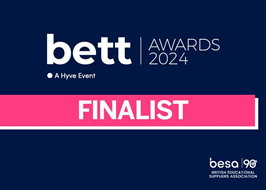What's new in TIME 2
What hasn't changed
- Functions first approach. Structured programming from the start really makes a big difference. Now there is more scaffolding to make the transition easier for students.
- TIME: Try, Investigate, Make, Evaluate structure to learning. It's PRIMM but our acronym makes more sense!
- GCSE style real-world scenarios.
- Encouraging subject specific terminology by using it extensively in explanations.
General changes
- The TIME scheme is now free for everyone.
- PowerPoint workbooks have been replaced with a website.
- Objectives are now called levels for seamless integration with Mission Encodeable.
- Levels are restructured to be in blocks of three allowing for transition points and delivery at Key Stage 3.
- Inputs are now required instead of hard-coding data arguments and calling functions.
- Inputs are in level 1 without validation to make the transition from Key Stage 3 easier.
- Each level contains 3 learning programs and 6 practice programs.
- Robust validation has been removed to make progression easier.
- Basic validation is introduced with condition controlled iterations and string methods.
- Condition and counter controlled iterations have been split across blocks to make progression easier.
- 1D and 2D arrays and lists have been split across blocks to make progression easier.
- Lists are taught earlier because they are more often required in examinations.
- String manipulation is taught later as they can be seen as arrays of characters which makes indexing strings easier to understand.
- Assessment point programs are provided with a marking framework.
- Program extensions are expressed as success criteria for transition to A level.
- Mostly PEP 8 standard including snake case for identifiers making it easier working in PyCharm.
- Progress tracking sheet has been updated.
- Certificates students can download or print when they complete a level.
Learning program changes
- Some new programs.
- Try programs are more substantial.
- Try programs can be run from an online Trinket IDE - no copy and paste required eliminating errors in learning programs.
- "Live coding" videos replace speech bubble explanations on PowerPoint slides.
- Answers to investigate questions are included for students to see. These are for learning not assessment.
- Investigate stage no longer contains a page of subject specific terminology learning points. It was too much to read.
- Keyword summary is now in a knowledge organiser section with additional support.
Practice program changes
- Some new programs.
- A shorter 4-point or longer 6-point scheme.
- Keyword summary is now in a knowledge organiser section with additional support.
- Programming guide for each level.
- Make stage includes extensions to pre-written programs.
- Differentiated programs reduced from 9 to 6 to make use of the Mission Encodeable integration.
- Practice programs all follow the same format. Parsons and flowchart activities can be undertaken for any program.
- Sample output is shown for each program to be used with stepped challenges.
- Flowcharts are provided for each subprogram for scaffolding.
- Parsons problems are provided for each subprogram for scaffolding.
- Evaluate stage does not include test tables, but a framework for these is provided.
- Update to the oral feedback framework.
- Unit tests provided.
- Trace table template provided.
- Fun extension programs provided by Mission Encodeable.
